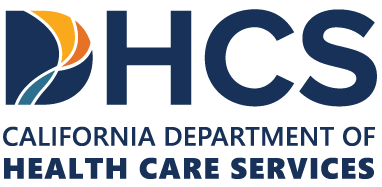Stress is an inevitable part of life, but it presents distinct challenges for individuals in recovery that can threaten to derail sobriety. Research consistently shows that stress is one of the most common triggers for relapse, making effective stress management central to long-term abstinence from drugs or alcohol.
This page explores evidence-based strategies for maintaining sobriety during stressful periods, offering practical tools and techniques that have proven effective in real-world recovery scenarios. Knowing how stress impacts the brain and implementing targeted coping mechanisms can mean the difference between sustained recovery and relapse.
The Stress-Addiction Connection
When stress strikes, your body activates its fight-or-flight response, releasing cortisol and adrenaline. For those in recovery from drug or alcohol addiction, this physiological reaction can trigger intense cravings. The brain’s reward pathways, already altered by addiction, become hyperactive during stress, sometimes making substances seem like the quickest path to relief.
Chronic stress compounds this challenge by keeping cortisol levels elevated. High cortisol interferes with the function of the pre-frontal cortex, the brain region responsible for impulse control and decision-making. This means that stress not only feels overwhelming, but also impairs your ability to make healthy choices.
Struggling with stress-induced cravings does not indicate weakness, then. Instead, it demonstrates that you’re experiencing a predictable neurobiological response that requires targeted strategies to overcome.
Immediate Stress Response Strategies
When stress hits suddenly, having rapid-response tools can help prevent impulsive decisions. These techniques work by activating your parasympathetic nervous system, which counteracts the stress response.
Deep breathing exercises offer immediate relief. Try the 4-7-8 technique: inhale for 4 counts, hold for 7, and exhale for 8. This pattern slows your heart rate and reduces anxiety within minutes. The beauty of breathwork lies in its accessibility – you can practice it anywhere, anytime.
Grounding techniques pull your focus away from inner turmoil. Name 5 things you can see, 4 you can touch, 3 you can hear, 2 you can smell, and 1 you can taste. This 5-4-3-2-1 method anchors you in the present moment, interrupting the stress spiral.
Physical movement helps naturally burn off stress hormones. Even a brief walk around the block or simple stretching can shift your neurochemical state. Movement doesn’t require a gym membership or an elaborate routine. All you need is enough activity to engage your body and clear your mind.
Building Your Support Network
Isolation amplifies stress and increases the risk of relapse. Building and maintaining robust support connections provides emotional relief and practical accountability during challenging periods.
Identify your emergency contacts. Create a list of 3 to 5 people you can call when stress becomes unbearable. Include sponsors, therapists, trusted friends, or family members who understand your recovery journey. Keep this list accessible on your phone.
Participate in support groups regularly, not just during times of crisis. Consistent attendance builds relationships that become lifelines during stressful times. Whether through AA (Alcoholics Anonymous), NA (Narcotics Anonymous), or SMART Recovery, these connections provide peer support and proven coping strategies.
Consider professional support. Therapists specializing in addiction understand the challenges of maintaining sobriety under stress. They can provide personalized coping techniques and help you process difficult emotions without resorting to substances.
Stress Prevention Through Lifestyle Management
Proactive stress management reduces the frequency and intensity of overwhelming moments. These foundational practices build resilience before crises occur.
- Establish consistent sleep patterns – Poor sleep increases stress vulnerability and weakens impulse control. Aim for 7 to 9 hours nightly, maintaining regular bedtimes even on weekends. Create a calming bedtime routine that signals your brain to wind down.
- Exercise regularly – Physical activity reduces stress hormones while boosting mood-regulating neurotransmitters like serotonin and endorphins. Find activities you enjoy, from walking and swimming to yoga and dancing. Consistency matters more than intensity.
- Practice mindfulness daily – Regular meditation, even for just 10 minutes, strengthens your ability to observe thoughts and emotions without being overpowered by them. Apps like Headspace or Calm offer guided sessions designed explicitly for addiction recovery.
- Fuel your body correctly – Balanced nutrition stabilizes blood sugar and mood. Avoid excessive caffeine, which can increase anxiety, and focus on whole foods that provide steady energy. Proper nutrition supports physical health and emotional stability.
Cognitive Strategies for Stress Management
How you think about stress impacts how you experience it. Developing healthier thought patterns can reduce the emotional impact of stress and decrease the risk of relapse.
Challenge catastrophic thinking. Stress often makes problems seem worse than they are. When overwhelmed, ask yourself: “Is this situation as bad as it feels? What would I tell a friend facing this same challenge?” This perspective shift can reduce emotional intensity.
Practice acceptance of difficult emotions. Fighting against stress and negative feelings often intensifies them. Instead, acknowledge these emotions as temporary experiences that will pass. Acceptance doesn’t mean giving up. It simply means responding thoughtfully rather than reactively.
Focus on what you can control. Make a list dividing your stressors into “Things I can change” and “Things I cannot change”. Focus your energy on actionable items while accepting circumstances beyond your control.
Use positive self-talk. Replace self-critical thoughts with encouraging ones. Instead of thinking, “I can’t handle this”, try, “This is difficult, but I have tools to cope”. These mental shifts may seem minor, but they have a significant impact on emotional resilience.
Creating Healthy Stress Outlets
Redirecting stress energy into positive activities prevents it from building to dangerous levels. These outlets provide both immediate relief and long-term benefits.
Engage in creative activities. Art, music, writing, or crafting offer emotional expression while positively engaging your mind. Creative pursuits activate brain regions associated with pleasure and accomplishment, naturally improving mood.
Pursue hobbies and interests. Rediscovering activities you enjoyed before addiction set in or exploring new interests provides a healthy distraction and builds self-confidence. Hobbies promote positive social connections and give you something to look forward to.
Volunteer or help others. Focusing on the needs of others provides a valuable perspective on your own challenges, helping you build more meaningful connections. Many people in recovery find that assisting others strengthens their commitment to sobriety.
Spend time in nature. Natural environments reduce cortisol levels and improve mood. Even brief outdoor exposure, such as sitting in a park, gardening, or watching the sunrise, can have a dramatic impact on stress levels.
When to Seek Additional Help
Keep in mind that seeking help is a sign of strength, not weakness. Contact your healthcare provider if stress persists despite using coping strategies, if you’re experiencing physical symptoms like chest pain or severe headaches, or if you’re having thoughts of self-harm.
Reach out to your support network when cravings become intense, when you find yourself isolating in spite of efforts to connect, or when stress interferes with basic functioning like sleep or work.
Consider IOPs (intensive outpatient programs) if you’re struggling to maintain sobriety independently. These programs provide additional structure and support while enabling you to fulfill your everyday obligations.
The Path Forward
Maintaining sobriety during stressful times requires preparation, practice, and patience with yourself. Stress will continue to be part of your life, but your response to it can change. By building a toolkit of coping strategies, maintaining strong support connections, and practicing self-compassion, you can confront life’s challenges without compromising your recovery from drug or alcohol addiction.
Remember that setbacks don’t erase progress. If you experience a lapse, use it as information about what strategies need strengthening or adapting. Recovery is a journey, not a destination, and every day of sobriety is an achievement worth celebrating.
Begin Your Recovery Journey at The Retreat South Coast
At The Retreat South Coast, we appreciate that recovery from drug or alcohol addictions goes far beyond detox. Our personalized treatment programs combine evidence-based therapies with innovative approaches, such as fitness therapy, nutritional counseling, and mindfulness training, to help you develop lasting coping skills for life’s challenges.
Our compassionate team of experts creates individualized treatment plans that address not just addiction, but the underlying stress and trauma that often drive substance use. We help you develop the tools needed to maintain sobriety during difficult times with flexible programming and comprehensive support.Get help today and recalibrate your life by calling admissions at (949) 612-4789.









